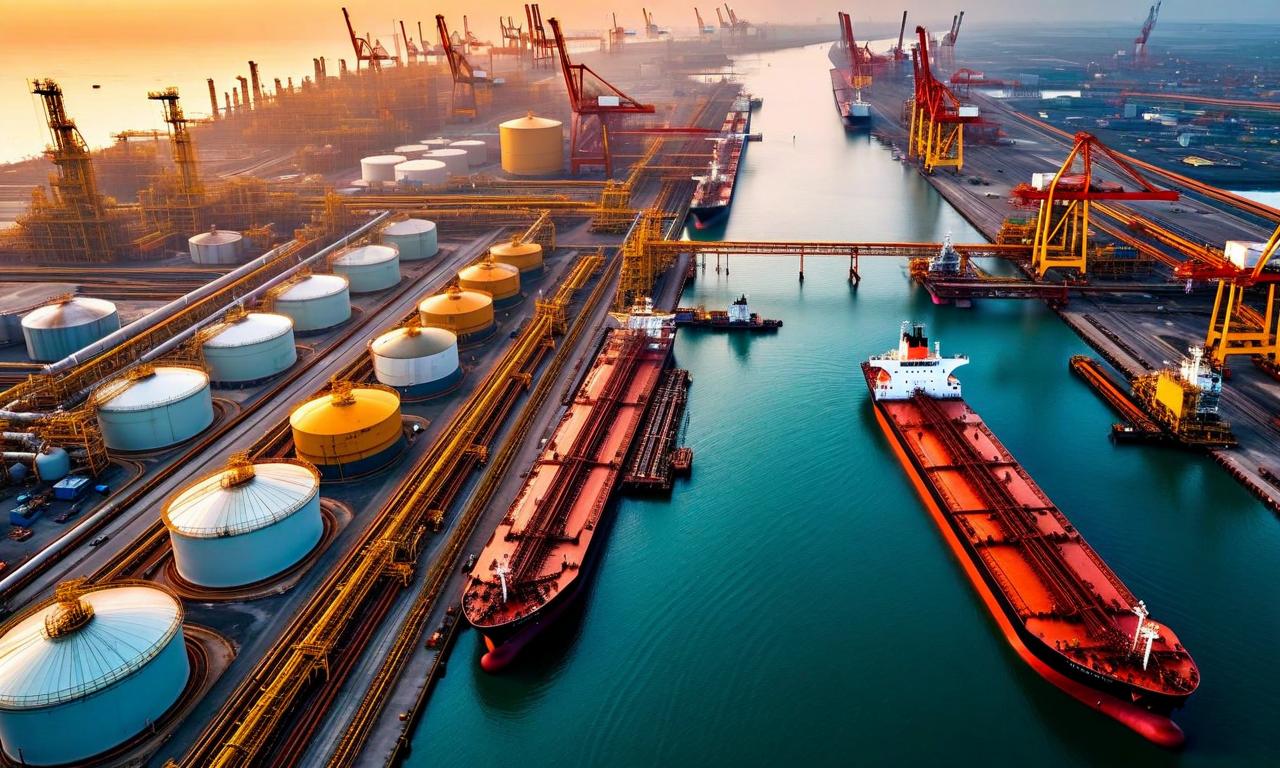Russia's Oil Exports Surge as China Boosts Imports, India Retreats Amid US Tariffs
Russia's crude oil exports have reached a seven-week high of 3.49 million barrels per day, driven by increased shipments to China. China's imports from Russia hit a five-month high of 1.28 million barrels daily. Meanwhile, India's imports have fallen below 1.30 million barrels daily, a one-third decrease from March peaks, following US tariff increases. The weekly export value rose by 28% to $1.42 billion, despite falling Urals crude prices. Operational challenges, including refinery attacks and port damages, have also influenced export patterns.

*this image is generated using AI for illustrative purposes only.
Russia's crude oil exports have rebounded significantly, reaching a seven-week high of 3.49 million barrels per day. This surge is primarily attributed to increased shipments to China, which have offset a notable decline in exports to India following punitive US tariffs.
China's Growing Appetite for Russian Oil
China has emerged as a key driver of the recent uptick in Russian oil exports. The country's crude imports from Russia hit a five-month high of 1.28 million barrels daily, underscoring the strengthening energy ties between the two nations. This increased demand from China has played a crucial role in bolstering Russia's oil export figures.
India's Imports Plummet Amid US Pressure
In contrast to China's growing imports, India has significantly reduced its intake of Russian oil. The decline comes in the wake of US President Trump's decision to double import tariffs on Indian goods to 50%, a move explicitly aimed at penalizing India for its Russian oil purchases. As a result, Indian imports have fallen below 1.30 million barrels daily, marking a one-third decrease from the peaks observed in March.
Export Value and Pricing
Despite the shifts in export destinations, the overall value of Russia's oil exports has seen a substantial increase. The weekly export value rose by 28% to $1.42 billion. However, this rise in value comes against a backdrop of falling prices for Russian crude. Urals crude prices have hit new lows since mid-June, with Baltic cargoes averaging $54.36 per barrel and Black Sea shipments at $54.91 per barrel.
Operational Challenges and Recoveries
Russia's oil export landscape has been influenced by various operational factors:
- Shipments from the Sakhalin 2 project have resumed following maintenance work.
- Flows to Ust-Luga port have been partially restored after damage from a drone attack.
- Ukraine's attacks on eight Russian refineries have forced over 13% of active refining capacity offline, potentially freeing up more crude for export.
Global Implications
The recent developments in Russia's oil exports highlight the complex interplay of geopolitical tensions, economic pressures, and shifting energy alliances. As China increases its reliance on Russian oil and India pulls back under US pressure, the global oil trade continues to evolve, reflecting broader geopolitical realignments and economic strategies.
The situation remains fluid, with potential for further changes in export patterns as countries navigate the intricate balance between energy needs, economic interests, and international relations.

























